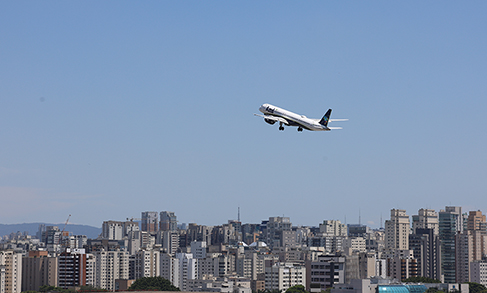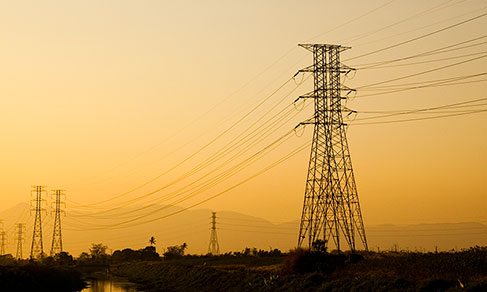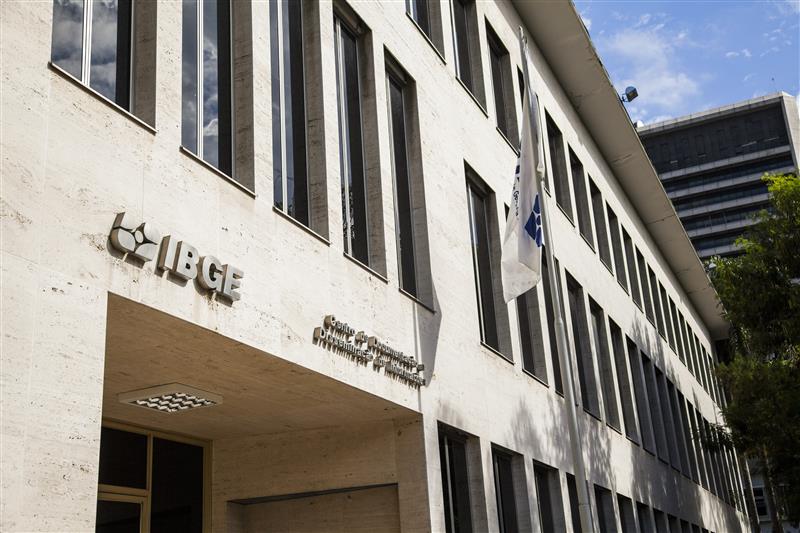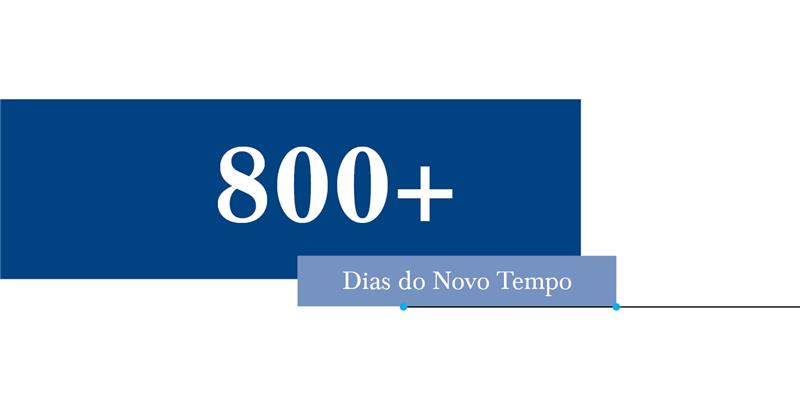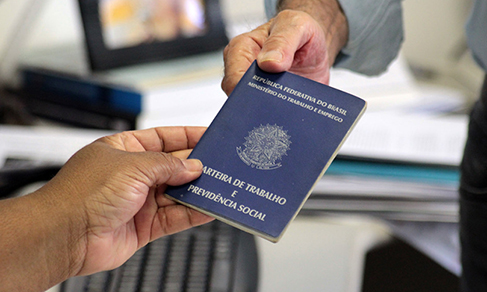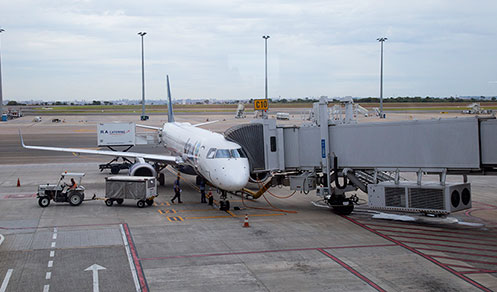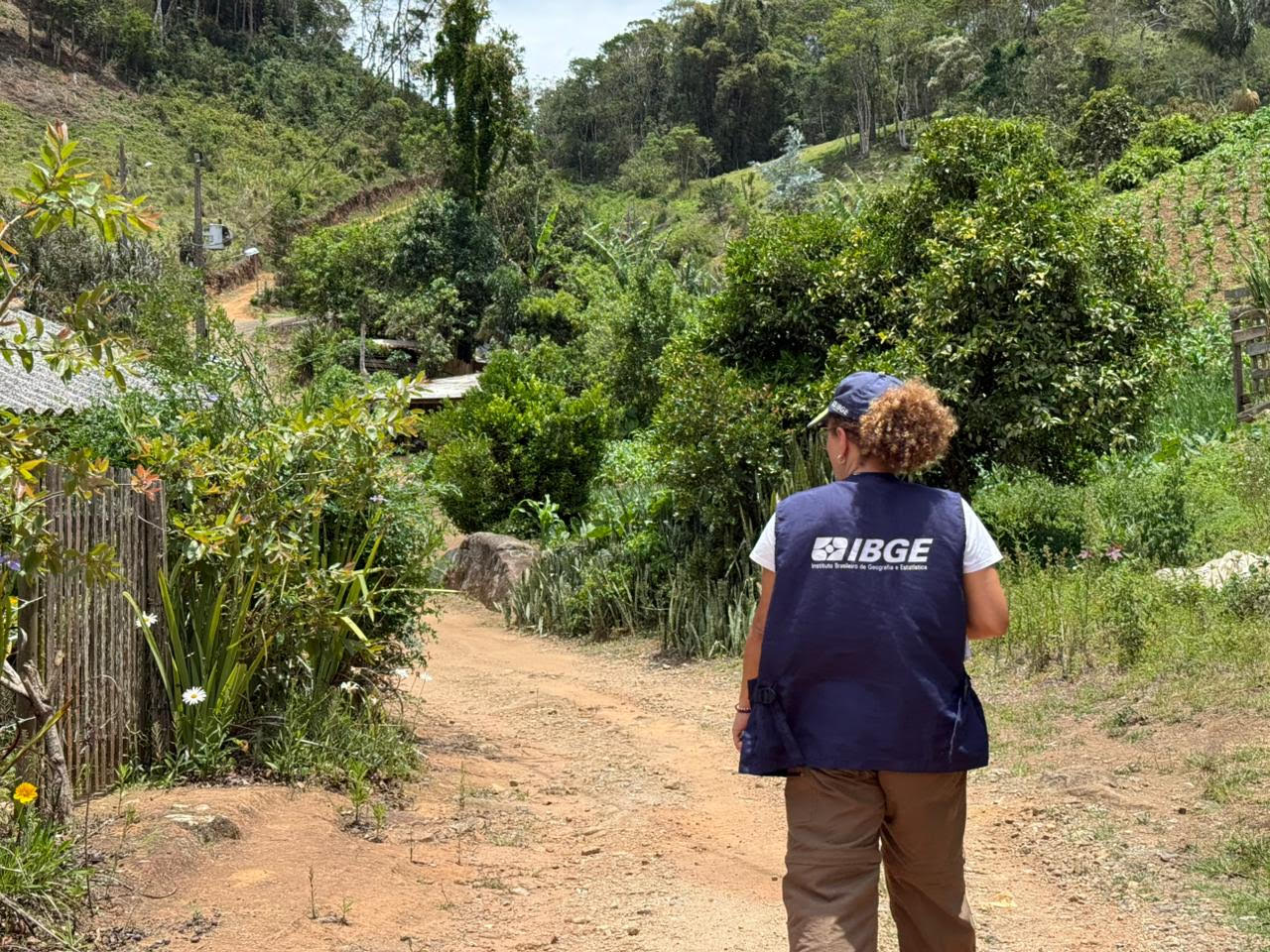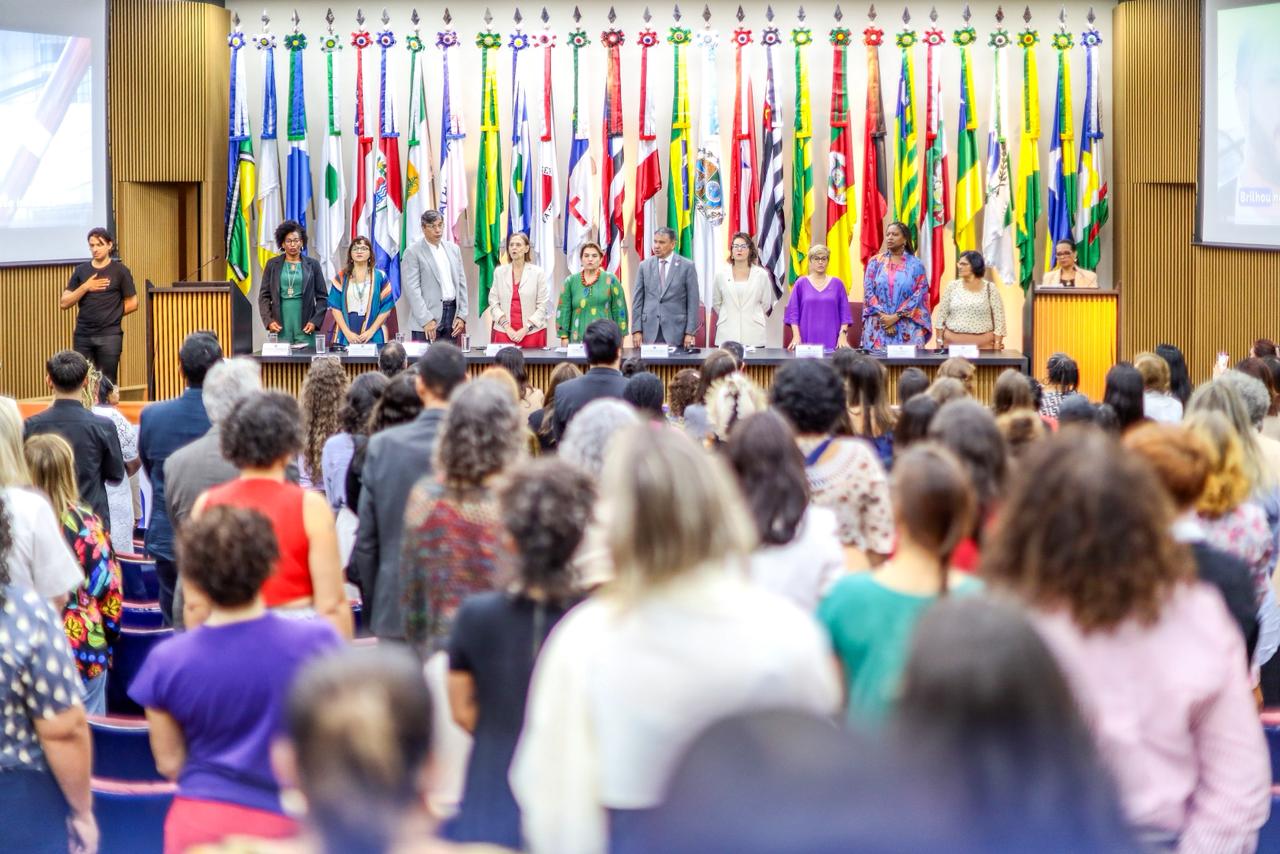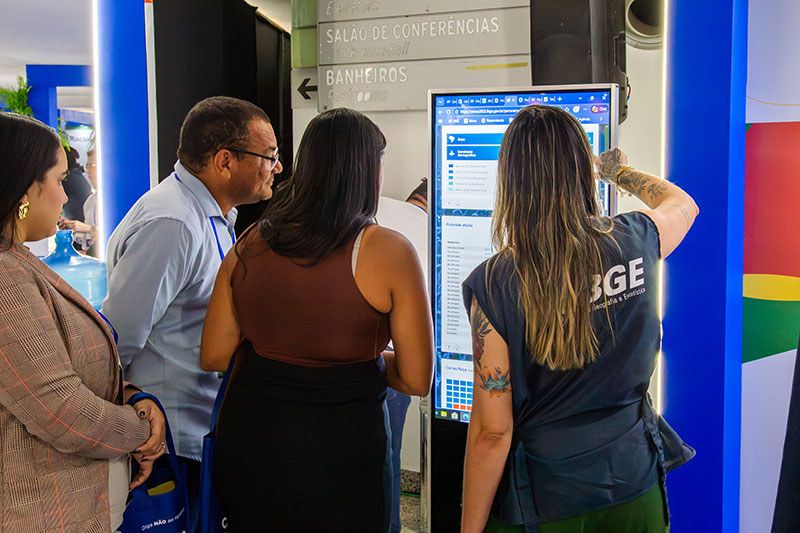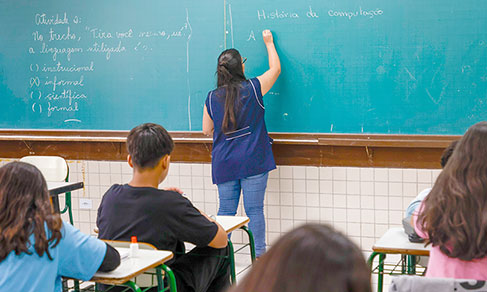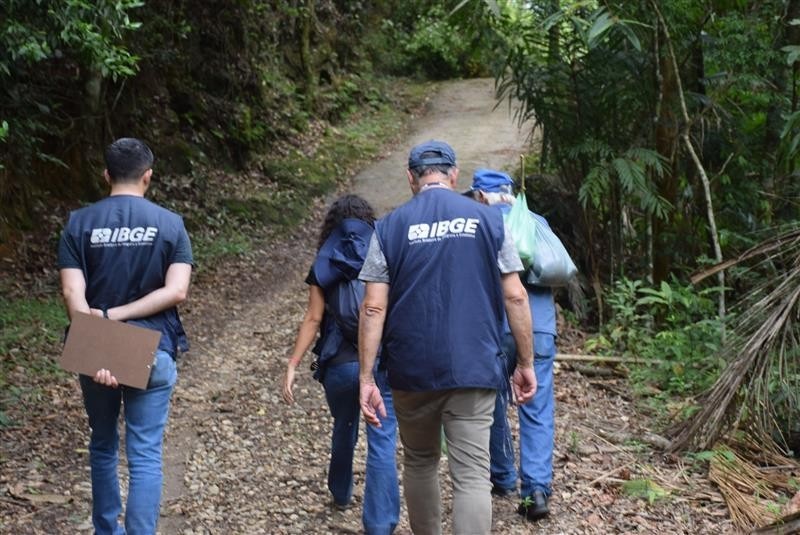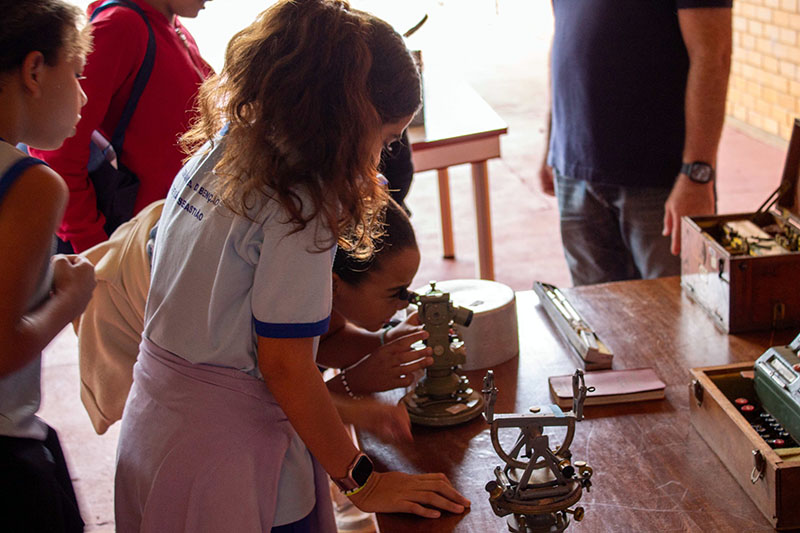External Dialogues
UFSC hosted the second edition of IBGE 90 External Dialogues in Florianópolis
March 21, 2024 09h51 AM | Last Updated: March 28, 2024 01h15 AM
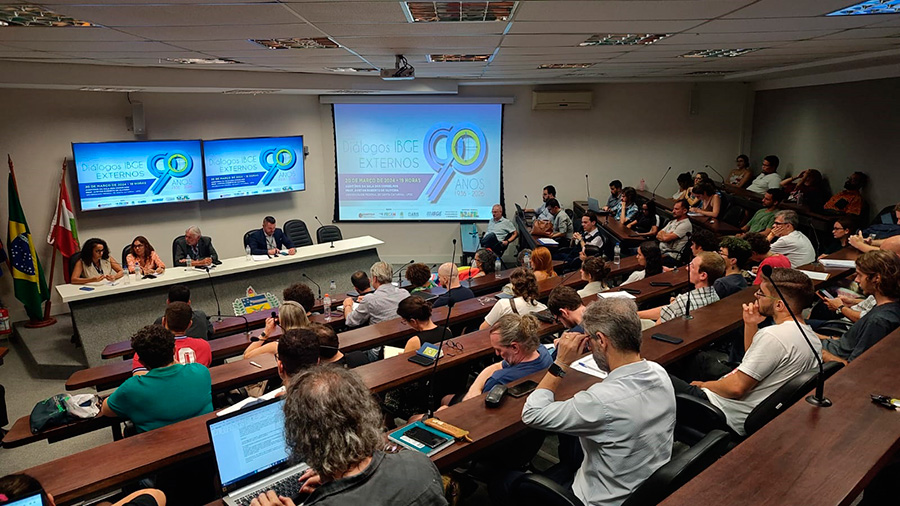
More than 80 persons gathered in the auditorium of the Federal University of Santa Catarina (UFSC), in Florianópolis, to participate in the second edition of the project IBGE 90 External Dialogues, yesterday (20). For more than two hours, the audience, full of professors, researchers and students at the university, talked to members of the IBGE team about new survey topics, dissemination of information, update of databases, territory mapping, among other topics. The event was broadcast live on the IBGE website.
The Dialogues' panel of interlocutors counted on the participation of Elizabeth Hypolito, Director of Surveys at the IBGE; Ivone Lopes Batista, Director of Geosciences; Marcos Mazoni, the Director of Information Technology; Roberto Kem Gomes, Superintendent of the IBGE in Santa Catarina; Joana Célia Passos, Provost of the UFSC; and Jacques Mick, Dean for Research at the UFSC.
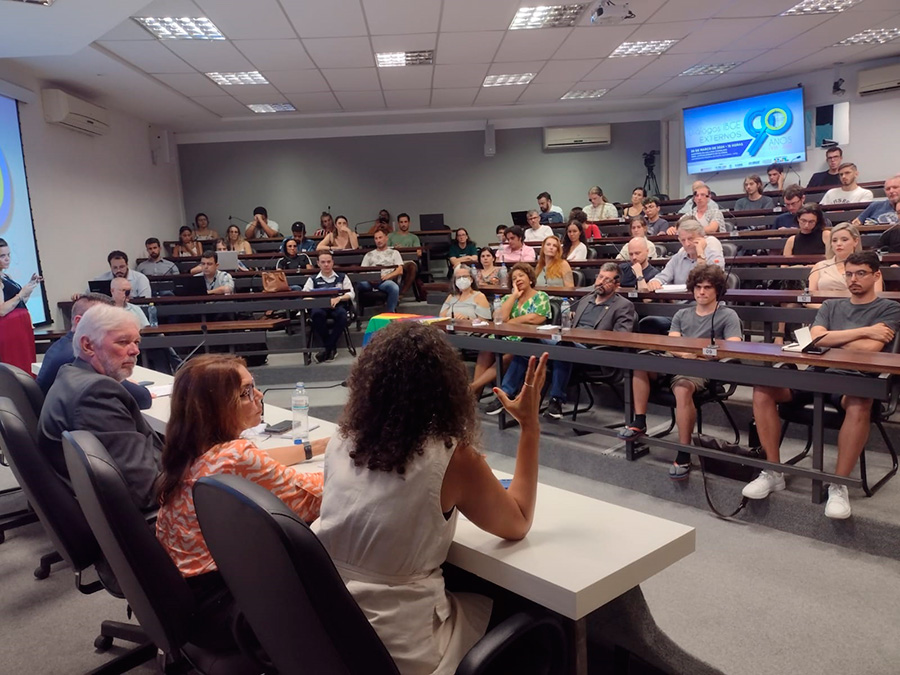
"It's an opportunity for the IBGE to have a dialogue and communicate with society so that it can explain how the information produced by the institute is received . The IBGE, approaching its 90 years, is concerned with knowledge production and dissemination of ng its output, which now reaches 314 products per year. I hope that the IBGE and its products can contribute to transforming the Brazilian society," said the president of IBGE, Marcio Pochmann, in a video message displayed at the opening of the event.
The Provost of the UFSC stated that it was an honor to receive the IBGE in an institutional event, as the information produced by the institute is already part of the university's daily work: "It is important to discuss and project what the IBGE will be in the future. When the IBGE portrays Brazil, it allows us to formulate public policies." She also highlighted the joy of being at a table with women directors and in front of the diverse audience that attended the event.
With the IBGE 90 External Dialogues , the institute continues the project “IBGE 90 Dialogues”, launched in August 2023, which has the objective to reflect on the memory built over almost nine decades of the agency's operation, as well as to think about directives for a new IBGE. The novelty is that with the External Dialogues, IBGE seeks the participation of society, together with the public sphere (Brazil, state, and municipalities), legislators, professional entities and collective representatives, students, among others.
The External Dialogues will be conducted in the 27 state capitals in Brazil, co-organized by the IBGE superintendencies and in partnership with local governments, and with the support from society actors that cooperate with information for the construction of indicators, conduction of events, and actions promoted by the IBGE in each state. The first edition of the event took place in Palmas (TO) in February, held in partnership with the Federal University of Tocantins (UFT).
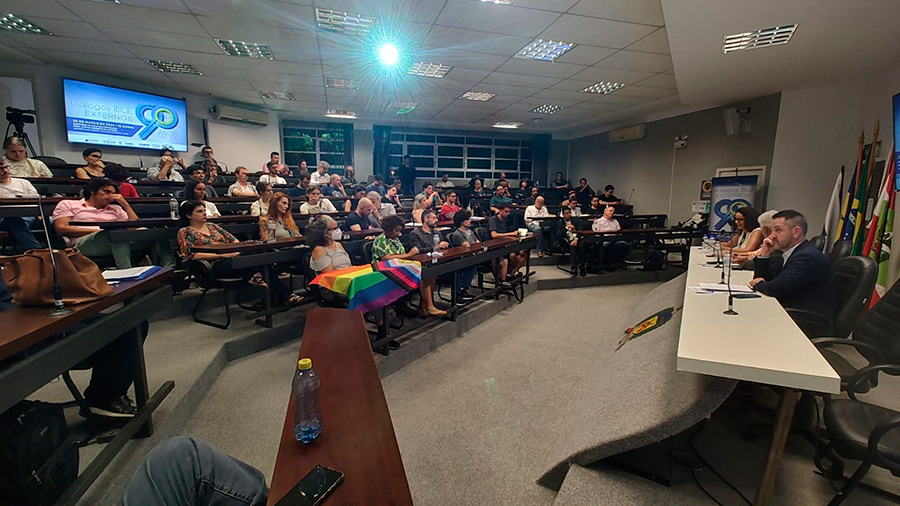
Connection of the IBGE with society
For Jacques Mick, the UFSC is currently experiencing an intense period of cooperation with the federal government and intends to extend this collaboration to IBGE, facilitating an exchange of competencies and skills that can benefit Brazilian society. In line with this, Ivone Lopes emphasized the importance of bridging the gap between IBGE's production and the academic community, which requires data for survey and project development.
However, the IBGE is concerned with the relevance of the statistical and geoscientific information provided. "It is necessary to produce information that allows the generation of public policies to have an impact and can improve the quality of life for all", assesses Marcos Mazoni. For Elizabeth Hypolito, the importance of producing data following the fundamental principles of official statistics: "It is important to consider the relevance of these statistics, whether they meet the needs of users, we must listen to and understand their needs."
Among the issues raised by participants to the IBGE representatives, suggestions for new research topics and the deepening of others already researched stood out, such as issues related to race or ethnicity and gender. There were also discussions about possibilities for territorial mapping, vegetation, and biomes, updating of information, the release schedule for the 2022 Census results, and providing educational materials for schools, such as atlases and educational maps.
“I am waiting for more information from the latest Census, especially the microdata. I see this meeting as a moment for two entities that are getting closer again. In geography, we use a lot of the IBGE data. They are crucial for underpinning our research, especially for the basic research conducted with undergraduate students", says Orlando Ferretti, a professor of the Department of Geosciences at UFSC.
At the closing of the event, the Provost of the UFSC highlighted the importance of the Dialogues. "I thank the IBGE for coming to us and guaranteeing this opportunity of dialogue. When State institutions listen to society, it is possible for us to advance, strengthen the work to be done, modify our reality, and continue to move forward. So, it's been almost 90 years of the IBGE, and it is beautiful because I'm already thinking about the 100th anniversary," she concludes.


